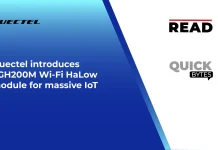Harmony Biosciences Holdings, Inc. (“Harmony”) (Nasdaq: HRMY), a pharmaceutical company dedicated to developing and commercializing innovative therapies for patients with rare neurological diseases, today announced that the U.S. Food and Drug Administration (FDA) has accepted an Investigational New Drug (IND) application for pitolisant for the treatment of idiopathic hypersomnia (IH). Harmony is planning to initiate a Phase 3 clinical trial to evaluate the safety and efficacy of pitolisant in adult patients with IH in the first half of 2022.
Also Read: Synapse PDI Announces Newest Integration with PointClickCare’s EHR Platform
“We are excited to announce this latest development consistent with our goal to expand the utility of pitolisant beyond narcolepsy where we hope to have an opportunity to help even more patients living with rare neurological diseases,” said John C. Jacobs, President and Chief Executive Officer of Harmony Biosciences. “Initiating a Phase 3 trial in patients with IH will accelerate our clinical pipeline for pitolisant and, if successful, would potentially give us the opportunity to pursue our next new indication for WAKIX®.”
“We have received strong interest from both the sleep medicine and patient communities for Harmony to investigate pitolisant in patients with idiopathic hypersomnia and are preparing to initiate a Phase 3 clinical trial in adults with IH,” said Harmony’s Chief Medical Officer, Jeffrey Dayno, M.D. “Given pitolisant’s unique mechanism of action working through histamine, a major wake-promoting neurotransmitter in the brain, we believe we have an opportunity to demonstrate its safety and effectiveness in IH, another central disorder of hypersomnolence like narcolepsy, with our goal being to offer a new treatment option for adult patients living with IH.”
IH is a rare and chronic neurological disease that is characterized by excessive daytime sleepiness (EDS) despite sufficient or even long sleep time. People living with IH experience significant EDS along with the symptoms of sleep inertia (prolonged difficulty waking up from sleep) and ‘brain fog’ (impaired cognition, attention, and alertness). Based on insurance claims data, the number of patients diagnosed with IH in the US ranges from 30,000 – 40,000.






